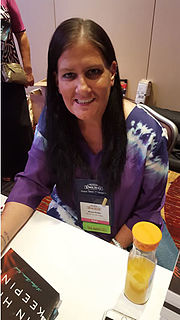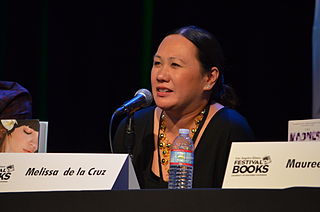A Quote by Ann Hood
The only language she could speak was grief. How could he not know that? Instead, she said, "I love you." She did. She loved him. But even that didn't feel like anything anymore.
Related Quotes
She was humbled, she was grieved; she repented, though she hardly knew of what. She became jealous of his esteem, when she could no longer hope to be benefited by it. She wanted to hear of him, when there seemed the least chance of gaining intelligence. She was convinced that she could have been happy with him, when it was no longer likely they should meet.
She smiled at him. “How did you know just what I’d want to see?” “How could I not?” he said. “When I think of you, and you are not there, I see you in my mind’s eye always with a book in your hand.” He looked away from her as he said it, but not before she caught the slight flush on his cheekbones. He was so pale, he could never hide even the least blush, she thought — and was surprised how affectionate the thought was.
One thing I did have under my belt was, my mother lost her mother when she was 11. She mourned her mother her whole life and made my grandmother seem present even though I never met her. I couldn't imagine how my mom could go on but she did, she took care of us, she worked two jobs and had four children. She was such a good example of how to conduct oneself in a time of grief. When I lost my husband, I tried to model myself as much as I could on her.
She wanted happily ever after more than he could possibly know. She wanted forever. Problem was, she just wasn’t sure she believed in it anymore. It was why she clung to her fiction so much. She immersed herself in books because there she could be anyone and it was easy to believe in love and happily ever after
He began to trace a pattern on the table with the nail of his thumb. "She kept saying she wanted to keep things exactly the way they were, and that she wished she could stop everything from changing. She got really nervous, like, talking about the future. She once told me that she could see herself now, and she could also see the kind of life she wanted to have - kids, husband, suburbs, you know - but she couldn't figure out how to get from point A to point B.
He was making her feel small and absurdly petulant and, worse yet, she suspected he was right. She always suspected he was right. For a brief irrational moment, she wished she could walk away from him. Then she wished, more rationally, that she could love him without needing him. Need gave him power without his trying; need was the choicelessness she often felt around him.
She couldn’t read his expression. As he started toward her, she recalled the way he’d seemed to glide through the sand the first time she’d ever seen him; she remembered their kiss on the boat dock the night of his sister’s wedding. And she heard again the words she’d said to him on the day they’d said good-bye. She was besieged by a storm of conflicting emotions—desire, regret, longing, fear, grief, love. There was so much to say, yet what could they really begin to say in this awkward setting and with so much time already passed?
...fact was she knew more about them than she knew about herself, having never had the map to discover what she was like. Could she sing? (Was it nice to hear when she did?) Was she pretty? Was she a good friend? Could she have been a loving mother? A faithful wife? Have I got a sister and does she favor me? If my mother knew me would she like me? (140)
They were close enough that he could feel the hurried beat of her heart. He could feel Charlotte's indecision in every word she didn't say and every move she didn't make. She was tense with uncertainty, quivering with irresolution. She might not be leaning into him, but she wasn't pulling away, either.



































